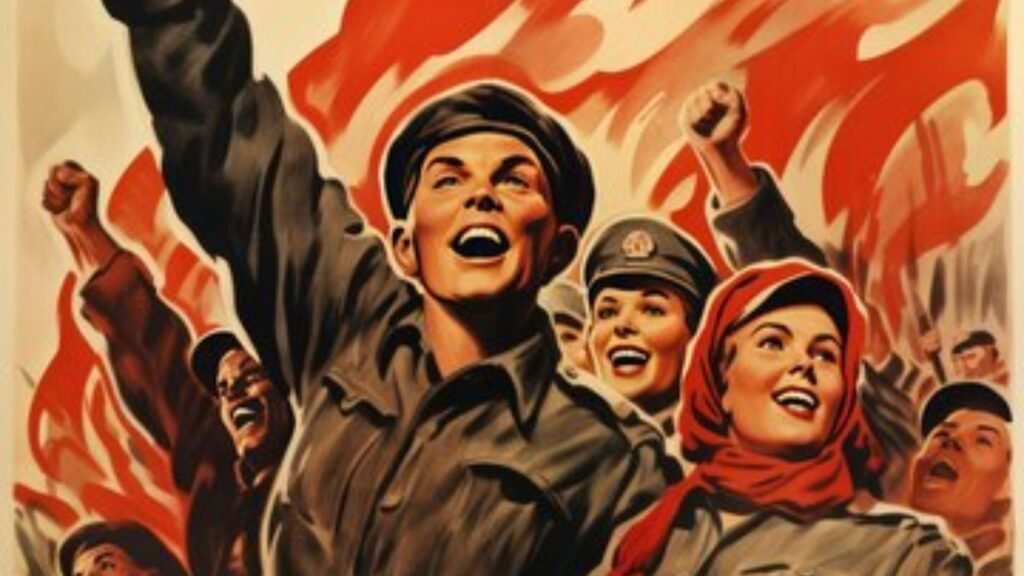Russian Revolution

The word socialism was first used by Robert Owen. He was a resident of Wales. Robert Owen is considered to be the spokesperson of idealistic socialism. The founder of scientific socialism was Karl Marx. Karl Marx was a resident of Germany. A Karl Marx has written a book titled Das Kapital and the Communist Manifesto. Saint Simon is considered the father of French communism. Fabian Socialism was led by George Bernard Shaw. The Fabian Society was established in London in 1884 AD. Karl Marx gave the slogan ‘Workers of the world unite’. A The ruler of Russia was called ‘Czar’. This tsarist system ended in March 1917. Alexander II is known as the Tsar Liberator. The last Czarist ruler of Russia was Czar Nicholas II. The immediate cause of the Russian Revolution in 1917 was the First World War. Russia was defeated in. Lenin was the leader of the Bolshevik Revolution of November 7, 1917. Lenin had organized the Cheka. The Red Army was organized by Trotsky. Russia’s Czar Emperor Alexander II was assassinated in a bomb blast. One Tsar, One Church and One Russia Slogan of Czar Nicholas II Had given. The largest population in Russia was of the Slavic people. The author of Anna Karenina was Leo Tolstoy. Turgenev is considered the father of nihilism. Plekhanov is considered the father of Russian communism. The Social Democratic Party was established in Russia in 1903 AD. This party was divided into two factions – Bolsheviks and Mensheviks. Bolshevik means ‘majority’ and Menshevik means ‘minority’. The leader of the Bolshevik Party was Lenin.
On April 16, 1917, Lenin published a revolutionary plan in Russia, which is known as ‘April Thesis’. In 1921, Lenin implemented a new economic policy in Russia. Stalin is considered the creator of modern Russia. Lenin died in 1924 AD. The author of ‘Rights of Man’ is Thomas Paine. ‘Mother’ was composed by Maxim Gorky. Trotsky was the originator of the theory of permanent revolution. Lenin’s slogan during the First World War was ‘End the war’. Karl Marx’s lifelong companion was Frederick Engels.
Economic and social changes
Economic and social changes were underway during the period of the Provisional Government in Russia, particularly evident in the countryside:
Many peasants subscribed to a basic principle regarding land ownership—that it should belong to those who cultivated it. This belief reflected a growing sentiment among the peasantry for more equitable land distribution.
Simultaneously, the dynamics of peasant life and culture were undergoing significant shifts. These changes were propelled by several factors, including the increasing movement of rural inhabitants to and from industrial and urban areas. This migration not only altered the demographic landscape but also facilitated the exchange of ideas and practices between rural and urban settings.
Moreover, the influence of urban culture permeated rural communities through the circulation of material goods, publications, and oral communication. This influx of urban influences introduced new perspectives and lifestyles to the countryside, contributing to the ongoing transformation of peasant society..
Political issues in Russia
Political issues in Russia during this period were multifaceted:
Numerous segments of society harbored grievances against the existing autocratic regime. Under the rule of Nicholas II, a staunch conservative, the country operated within a strict authoritarian framework. Citizens were expected to adhere to principles of self-restraint, community devotion, deference to social hierarchy, and a sense of duty to the nation. These ideals were often reinforced by religious beliefs, which served both as a source of solace in challenging times and as a tool for political control through the clergy.
Nicholas II’s reign was characterized by his portrayal as a saintly and infallible patriarch to his people, intertwining his fate and that of his dynasty with the concept of divine rulership. However, discontent simmered among various sectors of society due to political repression, economic inequality, and social injustice, laying the groundwork for widespread dissatisfaction and eventual revolutionary upheaval.
World War I

World War I, which erupted in August 1914, initially quelled widespread social and political unrest by redirecting focus towards a common external foe. This surge of patriotism united the populace against a shared enemy, albeit temporarily. However, as the conflict persisted without clear resolution, fatigue and disillusionment began to permeate society. While the early stages of the war witnessed many ordinary Russians participating in anti-German demonstrations, driven by a desire to protect their homeland and livelihoods, this sentiment didn’t necessarily equate to unwavering support for the Tsar or the government. As the war progressed and its toll became increasingly evident, enthusiasm waned, and skepticism towards the authorities grew among the populace.
Thanks reading my blog please leave me comments.
